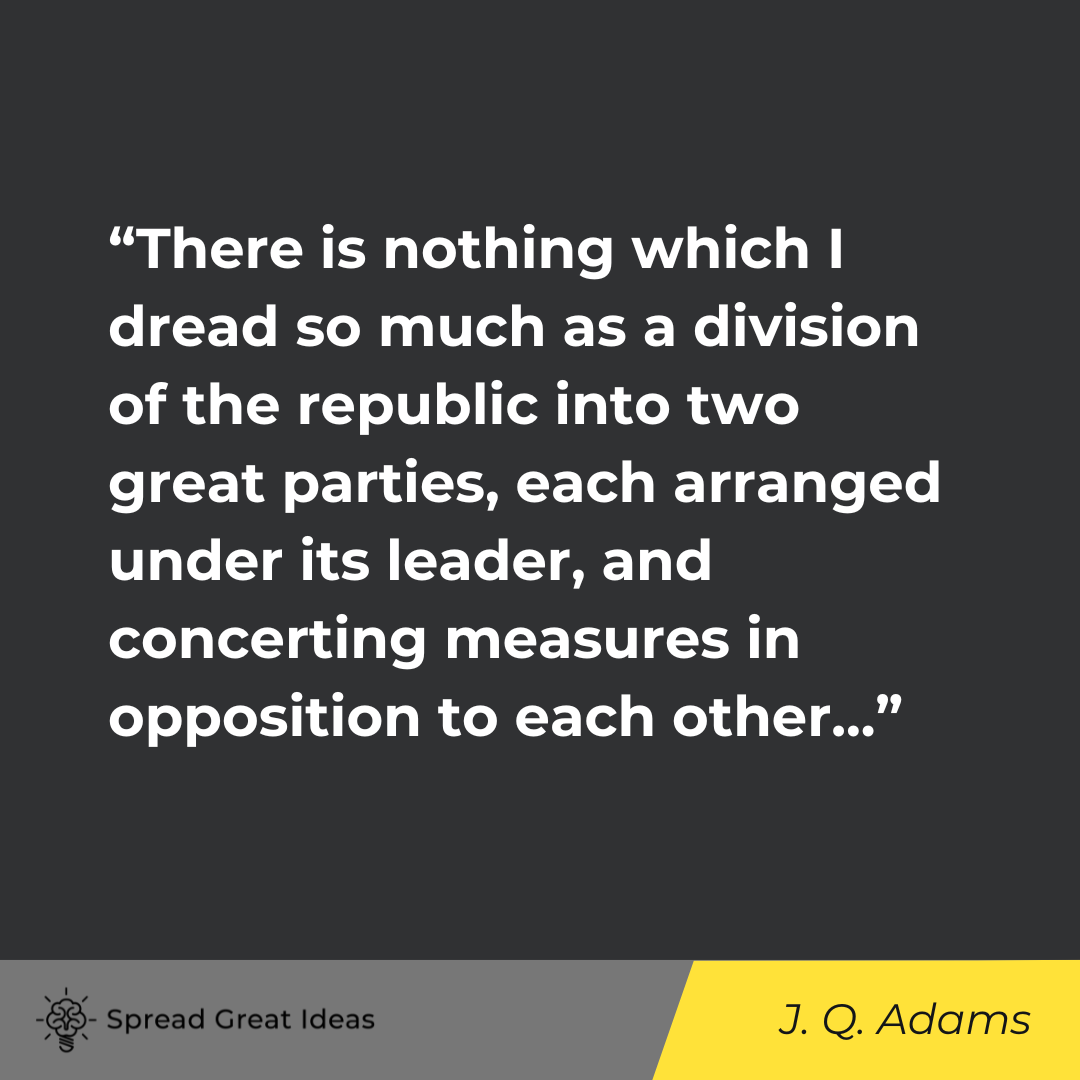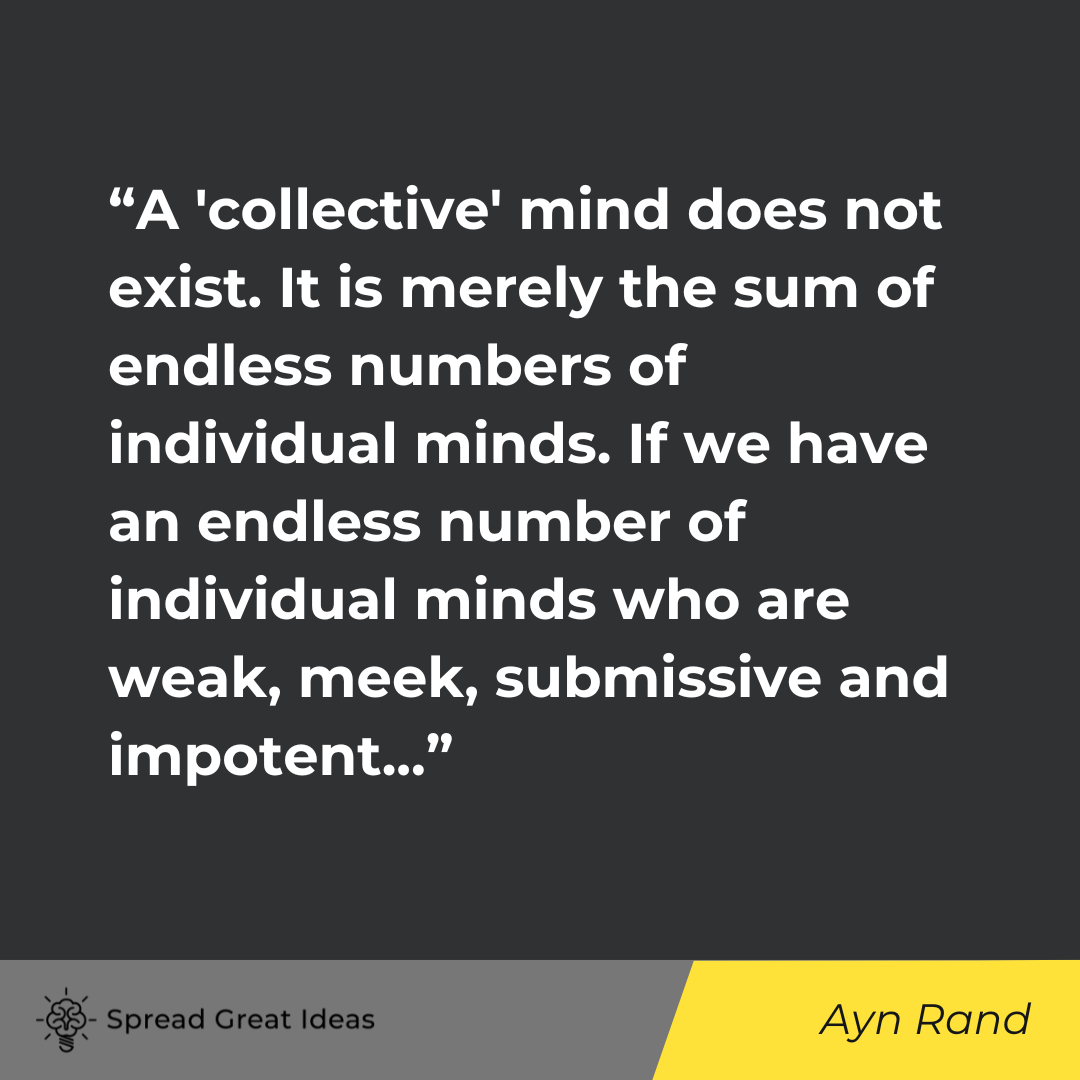Table of Contents

While mankind is a social animal, history is filled with examples of the danger of prioritizing the collective over the individual. This is the basis of all totalitarian states—that some imagined “collective good” is paramount and that the individual, when considered at all, is superfluous.
More than this, there is also the attitude among many otherwise intelligent men that they know what is best for others. While this might well be true, it is a big and dangerous step to begin giving this opinion the force of law.
These kinds of dangerous collectives are often driven by group thought. If collectivism is the symptom, the disease is groupthink, whereby people begin prizing intellectual conformity over rational thought, open discourse, and critical reflection. Indeed, there has scarcely been any political thinker in human history worth anything who did not recognize the danger that groupthink presented.
One need not look far to find examples of just how far this kind of thinking can go. However, one does not need to find the most extreme and grisly examples in human history to make the point that collectivism and groupthink are dangerous. Satanic Panic, McCarthyism and even idle gossip in a small community provide examples of such dangers far in advance of the death camp.
The following quotes all show a deep and penetrating insight into the dangers of collectivism and groupthink. We urge you to read them all and reflect on them.
John Quincy Adams
“There is nothing which I dread so much as a division of the republic into two great parties, each arranged under its leader, and concerting measures in opposition to each other. This, in my humble apprehension, is to be dreaded as the greatest political evil under our Constitution.”
– John Quincy Adams, letter to Johnathan Jackson, October 2, 1780

G.I. Gurdjieff
“What is possible for individual man is impossible for the masses.”

Ralph Waldo Emerson
“A sect or party is an elegant incognito devised to save a man from the vexation of thinking.”

Maimonides
“Truth does not become more true by virtue of the fact that the entire world agrees with it, nor less so even if the whole world disagrees with it.”

William Penn
“Right is right, even if everyone is against it, and wrong is wrong, even if everyone is for it.”

George Carlin
“Never underestimate the power of stupid people in large groups.”

“The larger the group, the more toxic, the more of your beauty as an individual you have to surrender for the sake of group thought. And when you suspend your individual beauty you also give up a lot of your humanity. You will do things in the name of a group that you would never do on your own. Injuring, hurting, killing, drinking are all part of it, because you’ve lost your identity, because you now owe your allegiance to this thing that’s bigger than you are and that controls you.”

Murray N. Rothbard
“I see the liberty of the individual not only as a great moral good in itself (or, with Lord Acton, as the highest political good), but also as the necessary condition for the flowering of all the other goods that mankind cherishes: moral virtue, civilization, the arts and sciences, economic prosperity. Out of liberty, then, stem the glories of civilized life.”

Anwar Sadat
“To damage the sovereignty of the individual is to replace a community inspired by love, benevolence, and beauty by another based solely on power.”

Arnold King
“Anyone who believes that we can afford collectively what we cannot afford individually is delusional.”
– Arnold King, Learning Economics

Ayn Rand
“A ‘collective’ mind does not exist. It is merely the sum of endless numbers of individual minds. If we have an endless number of individual minds who are weak, meek, submissive and impotent – who renounce their creative supremacy for the sake of the “whole” and accept humbly that the ‘whole’s’ verdict – we don’t get a collective super-brain. We get only the weak, meek, submissive and impotent collective mind.”
– Ayn Rand, The Journals of Ayn Rand

Friedrich Nietzsche
“In individuals, insanity is rare; but in groups, parties, nations and epochs, it is the rule.”

Thomas Jefferson
“The force of public opinion cannot be resisted, when permitted freely to be expressed. The agitation it produces must be submitted to. It is necessary to keep the waters pure.”

Henry A. Wallace
“The American fascist would prefer not to use violence. His method is to poison the channels of public information.”

Unknown
“A man convinced against his will is of the same opinion still.”
– Unknown

Arthur Balfour
“The tyranny of majorities may be as bad as the tyranny of kings.”

Marcus Aurelius
“The opinion of 10,000 men is of no value if none of them know anything about the subject.”

Vladimir Lenin
“Our power does not know liberty or justice. It is established on the destruction of the individual will.”

Winston Churchill
“Socialism is a philosophy of failure, the creed of ignorance, and the gospel of envy.”

Richard Wright
“They hate because they fear, and they fear because they feel that the deepest feelings of their lives are being assaulted and outraged. And they do not know why; they are powerless pawns in a blind play of social forces.”

Calvin Coolidge
“Liberty is not collective, it is personal. All liberty is individual liberty.”
– Calvin Coolidge, Address to the Holy Name Society, Washington, D.C., September 21, 1924

Anthony De Jasay
“The smaller the domain where choices among alternatives are made collectively, the smaller will be the probability that any individual’s preference gets overruled.”

Edward Bernays
“The conscious and intelligent manipulation of the organized habits and opinions of the masses is an important element in democratic society. Those who manipulate this unseen mechanism of society constitute an invisible government which is the true ruling power of our country…We are governed, our minds are molded, our tastes formed, our ideas suggested, largely by men we have never heard of. This is a logical result of the way in which our democratic society is organized. Vast numbers of human beings must cooperate in this manner if they are to live together as a smoothly functioning society…In almost every act of our daily lives, whether in the sphere of politics or business, in our social conduct or our ethical thinking, we are dominated by the relatively small number of persons…who understand the mental processes and social patterns of the masses. It is they who pull the wires which control the public mind.”

Mao Zedong
“The cult of xenophobia is the cheapest and surest method of obtaining from the masses the ignorant and savage patriotism, which puts the blame for every political folly or social misfortune upon the foreigner.”

Mark Twain
“Whenever you find yourself on the side of the majority, it is time to reform (or pause and reflect).”
